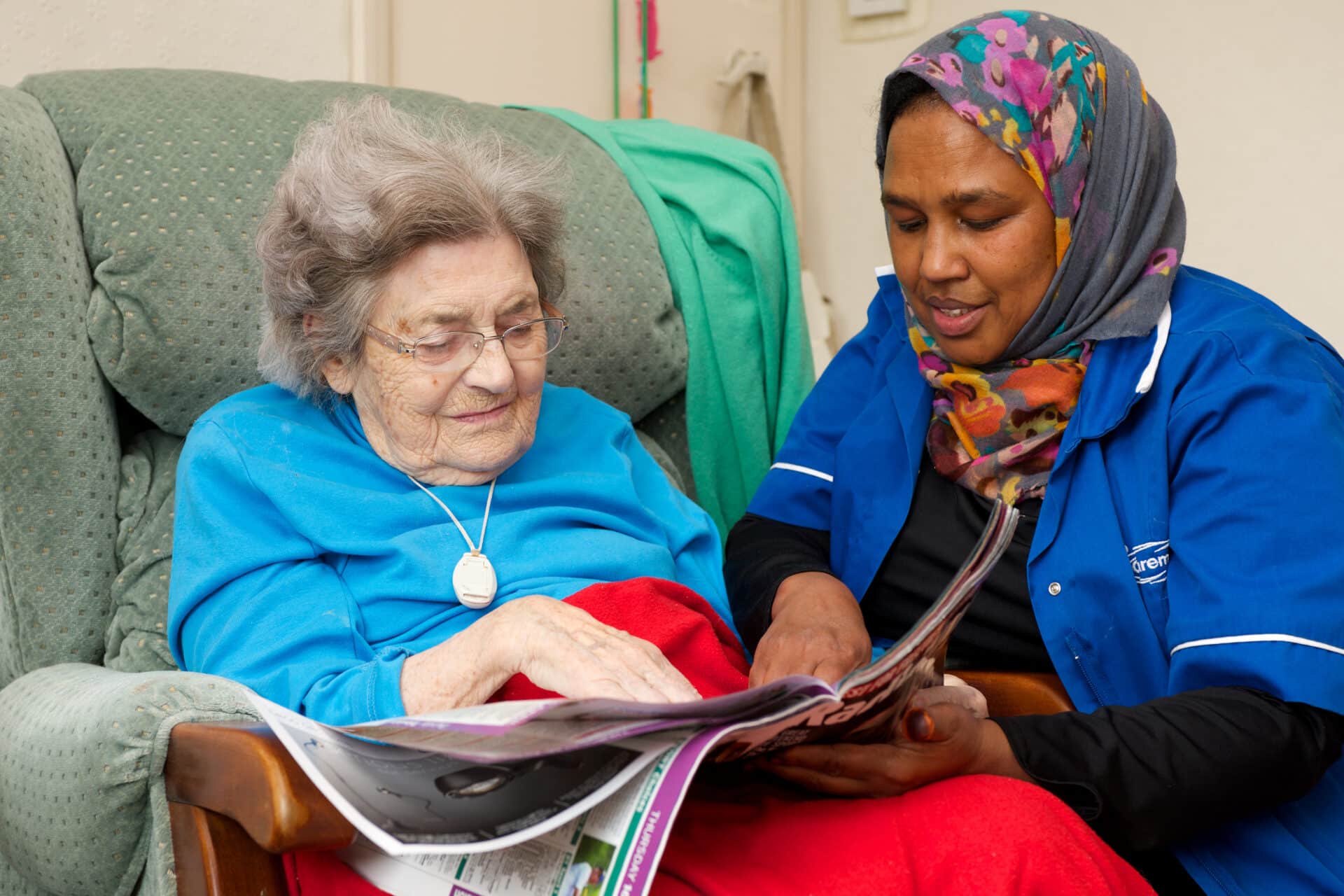Understanding Dementia Care Support

Spotlight on Common Health Conditions in Older Adults: Understanding Dementia Care Support
Dementia is one of the most common conditions affecting older adults. It impacts memory, communication, and daily functions, gradually increasing the need for support. At Caremark Barking & Dagenham, we provide specialized dementia care support in Barking and surrounding areas to help clients and their families manage this challenging condition. Here, we’ll cover dementia symptoms, care tips, and the types of home care support available.
What is Dementia?
Dementia describes a set of symptoms that affect cognitive functions, such as memory, language, and reasoning. Alzheimer’s disease is the most common type, but other types, like vascular and Lewy body dementia, affect many people as well. Dementia often progresses gradually, so early intervention and dementia care support can make a significant difference in quality of life.

Recognizing Dementia Symptoms
Knowing the early signs of dementia can help families seek support sooner. Common symptoms include:
- Memory Loss: People may struggle to recall recent events, even those that are important.
- Communication Struggles: Often, there are issues finding words, completing sentences, or following conversations.
- Mood and Behaviour Changes: Depression, anxiety, and personality shifts are common in the early stages.
- Challenges with Routine Tasks: Difficulties may arise in managing daily tasks, like preparing meals or medication routines.
For more information on dementia, consider visiting the NHS Dementia Information page.
Practical Tips for Dementia Care at Home
Caring for someone with dementia requires patience and understanding. Here are some tips that can help:
- Maintain a Routine: Routine minimizes confusion and creates a sense of stability.
- Simplify Communication: Use short, clear phrases to avoid misunderstandings.
- Promote Social Interaction: For example, activities like community visits or family gatherings can reduce isolation.
- Ensure Safety at Home: Removing tripping hazards and adding grab bars in key areas will help prevent falls.
- Engage in Familiar Activities: Music, puzzles, and hobbies can help stimulate memory and provide enjoyment.
Explore how our carers promote social interaction to enhance well-being for those with dementia..
Home Care Support for Dementia
Our dementia care support services at Caremark Barking & Dagenham are designed to meet physical and emotional needs, helping people live safely and with dignity:
- Companionship and Community Access: Our carers engage clients in conversations, accompany them to appointments, and support them in staying active.
- Personal Care Assistance: We help with tasks like bathing, dressing, and continence management, ensuring clients’ comfort and respect.
- Domestic and Meal Preparation Support: Our carers assist with light housekeeping and meal prep, making sure clients have nutritious, easy-to-eat meals.
- Medication and Reablement Assistance: Our team helps clients manage medications and reablement activities to stay on track with doctor’s recommendations.
While we provide specialized dementia care, some tasks are beyond our scope, such as nursing care or complex medical procedures. We recommend working with local health providers for those services.
Contact Us for Dementia Care Support
If you or a loved one could benefit from dementia care support, reach out to Caremark Barking & Dagenham. We’re committed to providing high-quality care that allows people to live with respect and dignity. Contact us today to learn more about our dementia care services.
Access local dementia resources, such as the Alzheimer’s Society’s page on dementia care.